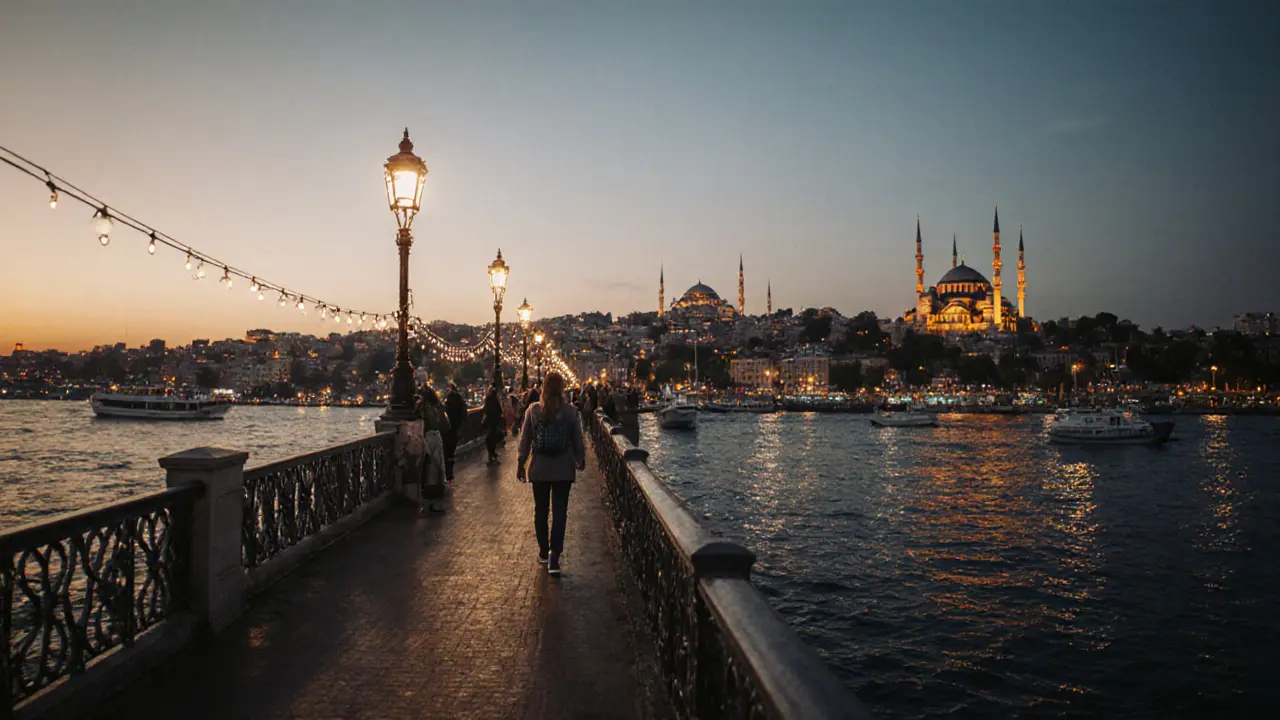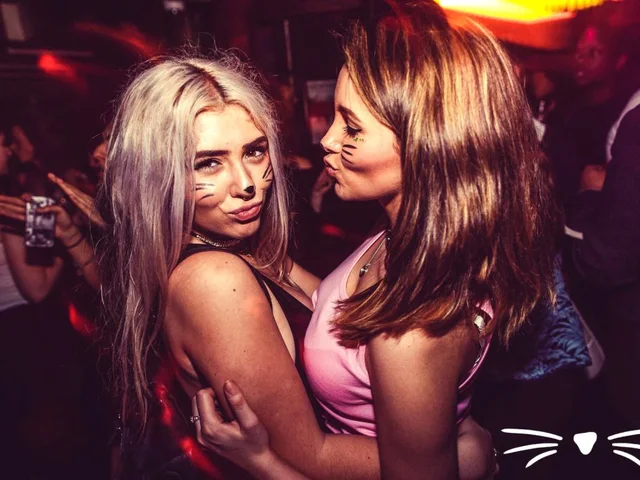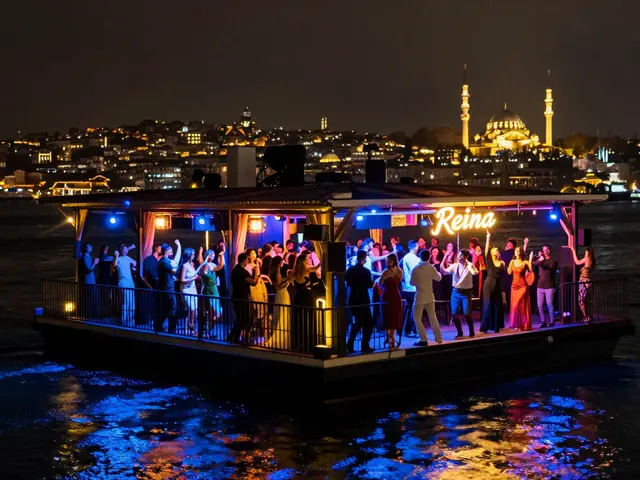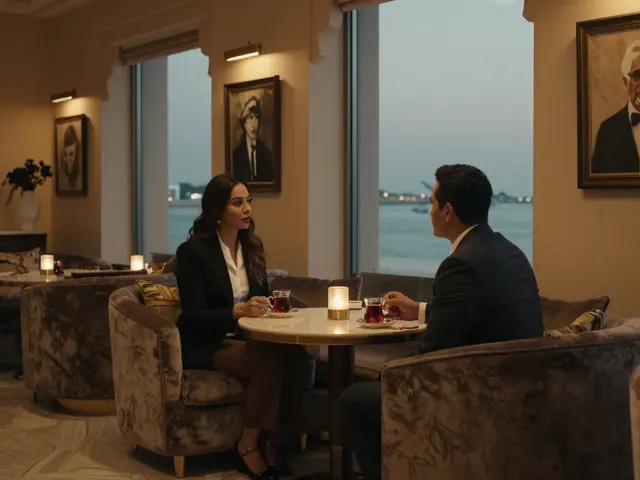Forget the guidebooks that tell you to see the Hagia Sophia at sunrise and call it a day. Istanbul doesn’t sleep - and if you’re here for 48 hours, you’re missing half the story if you don’t experience its night. This city doesn’t just have nightlife. It has rhythm. It has history whispered over rakı, bass thumping through converted Ottoman warehouses, and rooftop views where the Bosphorus glows under string lights. Here’s how to live it.
Day 1: Start Late, End Later
You land at 4 p.m. You’re tired. Don’t fight it. Grab a kebab at Çiya Sofrası in Kadıköy - the kind with grilled eggplant, pomegranate molasses, and a side of pickled turnips that clears your head. Walk it off along the Asian side’s waterfront. The sea breeze is cool. The lights across the Bosphorus start to blink on. That’s your first hint: Istanbul is two cities, and the night belongs to both.
By 9 p.m., head to Asitane in the Fatih district. It’s not a club. It’s a restaurant with live Ottoman music. But here’s the secret: stay past 11. The musicians loosen up. The wine flows. The old men in wool caps start singing. This isn’t tourist theater. It’s the sound of Istanbul remembering itself.
Now, cross the Galata Bridge. Walk to Reina - the legendary club on the European shore. You’ll see the line. Ignore it. Go around back. There’s a quieter entrance for those who know. Inside, it’s not loud. It’s deep. Think jazz-infused house, not EDM. The crowd? Locals in linen, expats who’ve been here five years, a few tourists who got lucky. The view? The illuminated minarets of Sultanahmet, the dark curve of the Bosphorus, and the neon glow of the Princes’ Islands in the distance. You’re not just watching the city. You’re inside it.
Day 1: Midnight to 4 a.m. - The Real Istanbul
Reina closes at 2 a.m. You’re not done. Head to Bar 1915 in Beyoğlu. It’s hidden behind a nondescript door, no sign. Just a single red lantern. Inside, it’s dim, wood-paneled, and smells like old books and tobacco. The bartender doesn’t ask what you want. He pours you a glass of çay - Turkish tea - then slides over a small bottle of homemade plum brandy. You didn’t order it. He knows you need it.
At 3 a.m., walk to Asmalı Mescit. It’s a quiet street with tiny bars tucked under arches. One of them, Bar 21, has a back room where locals play backgammon and argue about football. No music. Just laughter. You sit. You sip. You don’t speak Turkish. Doesn’t matter. A man hands you a cigarette. You nod. He smiles. That’s Istanbul.
Day 2: Sunrise to Sunset - The Afterparty
You sleep until 2 p.m. You’re not a morning person. Good. Istanbul doesn’t expect you to be. Grab a simit and strong coffee at Karaköy Güllüoğlu. Walk through the spice bazaar. Smell the saffron, the sumac, the dried limes. Then head to Moda on the Asian side. It’s the neighborhood where Istanbul’s creatives live. The cafés here don’t open until noon. The music is indie folk. The people are reading poetry. You sit outside, watching the sea. The night before feels like a dream.
At 6 p.m., take the ferry to Kadıköy. It’s cheaper, faster, and way more real than the tourist boats. The ferry is packed with students, shopkeepers, old women with bags of vegetables. You lean against the rail. The sun sets behind the Princes’ Islands. The sky turns orange, then purple. Someone nearby plays a ney - a traditional flute. You close your eyes. You don’t need to be anywhere else.
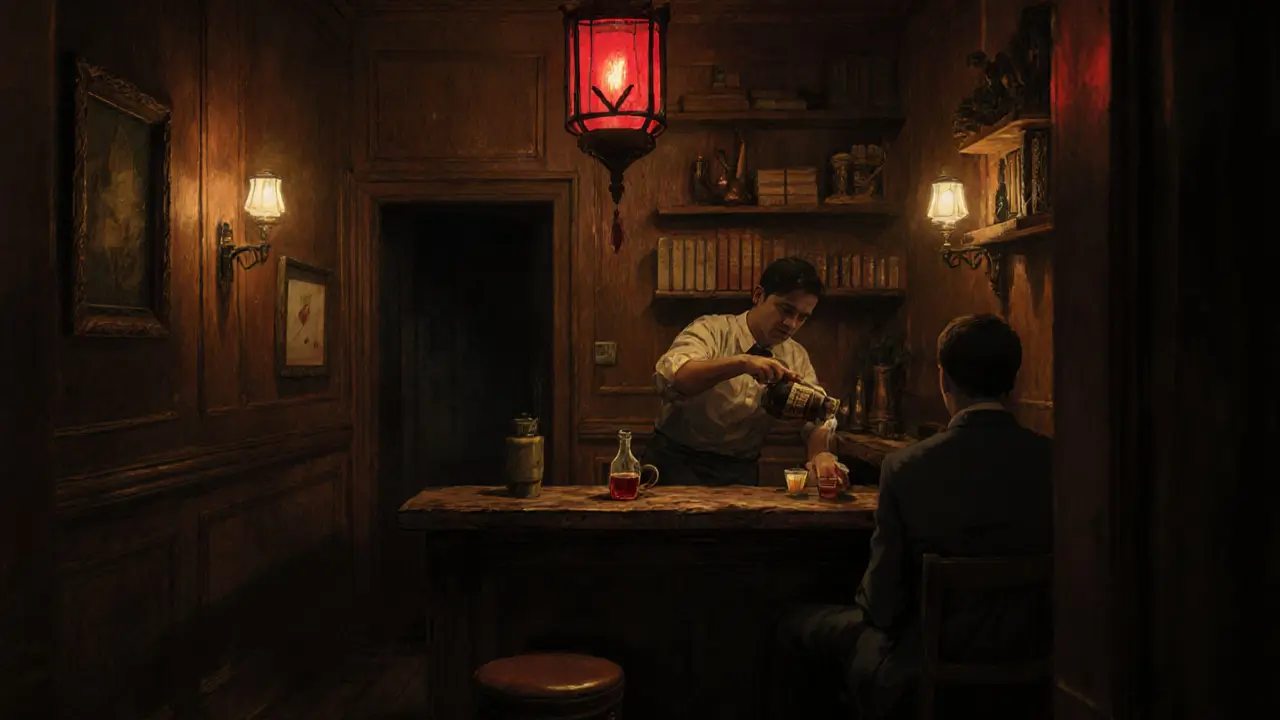
Day 2: Night Two - Where the Locals Go
Back on land, head to Arkaoda in Kadıköy. It’s a rooftop bar with mismatched chairs, fairy lights, and a DJ spinning Turkish remixes of 90s rock. The crowd? 20-somethings in vintage jackets, artists with paint-stained jeans, a couple celebrating their 10th anniversary. The drinks? Craft cocktails with rosewater and pomegranate. The vibe? Like you stumbled into a party your friend didn’t tell you about.
At 11 p.m., walk five minutes to Çiçek Pasajı - the Flower Passage. It’s been around since 1876. Once a place for aristocrats to sip champagne. Now? It’s a maze of tiny taverns, each with its own character. Try Meşhur. The owner, Mehmet, has been serving rakı here since 1982. He pours you a glass. You sip. It’s anise-flavored, strong, and tastes like history. He tells you, in broken English, “This is not for tourists. This is for those who stay.” You nod. You understand.
Day 2: Final Hours - The Quiet End
At 1 a.m., you find yourself at İstiklal Caddesi. The street is still alive. Street musicians play oud. A man sells roasted chestnuts from a cart. A group of teenagers dance to a Bluetooth speaker. You walk slowly. You don’t want this to end.
At 3 a.m., you sit on a bench near Taksim Square. The fountain is off. The only sound is the distant hum of a taxi. You think about the night before - the music, the brandy, the backgammon, the flute. Istanbul doesn’t show you its soul in museums. It shows it in the spaces between. In the quiet after the music stops. In the way strangers become friends over a glass of rakı.
You leave at 7 a.m. Your flight is at noon. You don’t sleep. You sit by the window. The city glows below you. You didn’t see the Blue Mosque. You didn’t take a selfie with the Galata Tower. But you saw something better. You saw how Istanbul lives when the sun goes down.
What You’ll Need
- Transport: Get an Istanbulkart. It works on ferries, buses, and metros. No cash needed. Buy one at any metro station.
- Dress: No dress codes, but locals dress smart-casual. Skip the flip-flops and tank tops after dark. A light jacket helps - nights on the Bosphorus get chilly.
- Money: Cash is still king in small bars. ATMs are everywhere, but carry 200-300 TL for the night. Credit cards work at Reina and Arkaoda, but not always at the hidden spots.
- Language: Learn three words: Teşekkür ederim (thank you), Lütfen (please), Evet (yes). That’s enough.
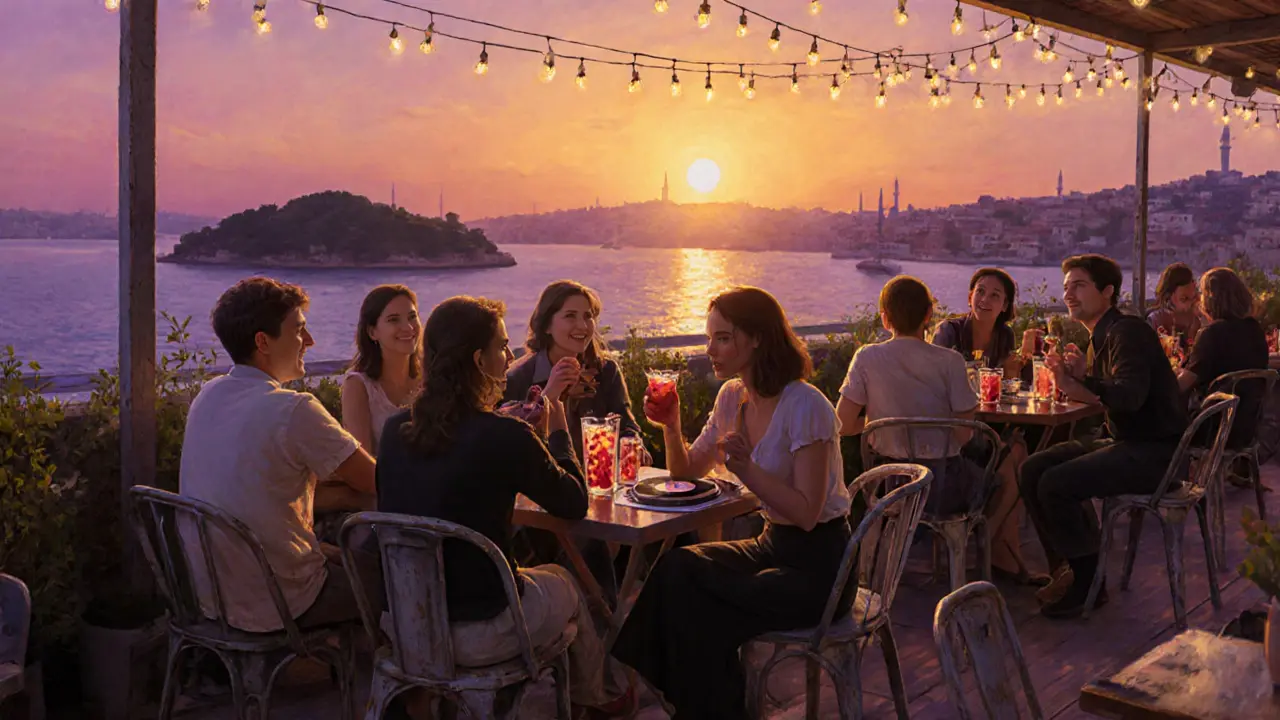
What Not to Do
- Don’t go to clubs that advertise “Istanbul’s #1 Nightclub” on Google Ads. They’re for tourists with big budgets and no taste.
- Don’t drink and walk alone in unlit alleys after 2 a.m. Stick to well-lit streets. Beyoğlu and Kadıköy are safe, but always be aware.
- Don’t expect silence after midnight. Istanbul is loud. Embrace it.
Where to Stay
If you want to be in the middle of it all, stay in Beyoğlu - close to İstiklal and the nightlife. Hotel Metropol has rooftop views and a bar that stays open until 4 a.m. If you want quiet, go to Kadıköy. Moda House is a boutique guesthouse with a garden and breakfast served until noon. You’ll sleep better, and wake up closer to the real night.
Is Istanbul nightlife safe for solo travelers?
Yes, especially in areas like Beyoğlu, Kadıköy, and along the Bosphorus. Istanbul has a strong police presence in nightlife zones, and locals are generally protective of visitors. Avoid isolated alleys after 2 a.m., stick to well-lit streets, and trust your gut. Most bars and clubs have security, and staff are used to helping tourists get home safely.
What’s the best time of year for Istanbul nightlife?
Late April through October is peak season. The weather is warm, outdoor terraces are open, and festivals like the Istanbul Jazz Festival or the Istanbul Music Festival bring extra energy. May and September are ideal - not too crowded, not too hot. Winter nights are quieter, but the hidden bars and backroom taverns still buzz. If you like intimacy over crowds, December to February offers a moody, authentic vibe.
Do I need to book tables at nightclubs in advance?
At big spots like Reina or Kule, yes - especially on weekends. But most of the real gems - Bar 1915, Bar 21, Meşhur - don’t take reservations. You show up, you wait a few minutes, you get in. That’s part of the charm. If you’re going to Reina, book online at least 24 hours ahead. For everything else, wing it. You’ll end up somewhere better.
How much should I budget for 48 hours of nightlife in Istanbul?
You can do it on 1,500 TL ($50) if you stick to local bars, ferries, and street food. But if you want to hit Reina, Arkaoda, and a few cocktails, plan for 3,500-5,000 TL ($115-165). Drinks cost 150-300 TL at local spots, 500-800 TL at upscale venues. Ferries are 20 TL. A kebab is 120 TL. Budget for the experience, not the price tag.
Are there any cultural rules I should know before going out?
Istanbul is relaxed, but respect matters. Don’t touch someone’s drink without asking. Don’t raise your voice in small bars - it’s considered rude. If you’re offered rakı, it’s polite to accept at least a sip. Don’t take photos of people without permission, especially in traditional spots like Çiçek Pasajı. And never, ever call it “Turkey.” Locals say “Istanbul.”
Next Steps
If you loved this itinerary, try extending it. Add a day trip to the Princes’ Islands - bikes, no cars, and rooftop bars with sea views. Or go to Çırağan Palace for a private dinner with live Ottoman music. If you’re into underground scenes, ask for Bar 1915’s secret playlist - locals swap it like a password. Istanbul doesn’t give its secrets easily. But if you stay late, listen close, and say thank you - you’ll find them.
